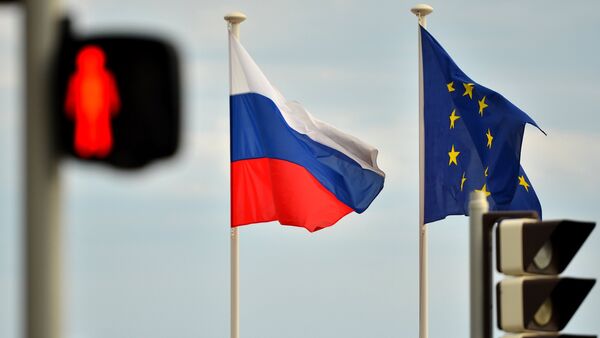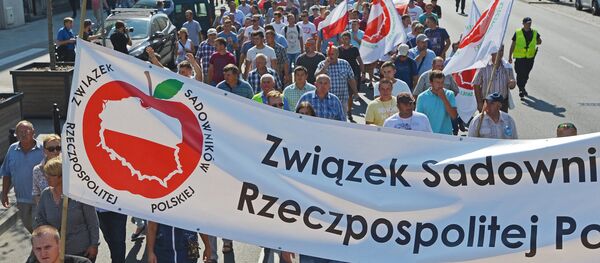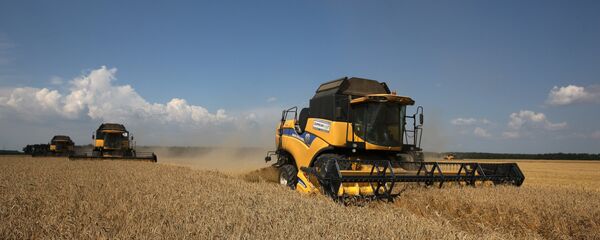In response to EU sanctions, Russia imposed its own counter-sanctions on food imports from the EU. On Wednesday, German newspaper Thuringer Allgemeine reported complaints from German food producers about the effects of Russian counter-sanctions.
Food producer Hainich, based in the east-central German state of Thuringen, said it had been in talks with a vital trading partner in Russia, but the deal has been "put on ice" because of sanctions.
Hianich managing director Cornelia Beau told the newspaper that the EU's decision to impose sanctions against Russia is a result of narcissism among politicians in Germany and the EU.
Beau, described as a supporter of Angela Merkel's Christian Democratic Union (CDU) party, said the decision is based on "the wounded vanity" of politicians, and urged them to be lifted.
Others told the newspaper their business is unaffected by the EU's anti-Russian sanctions, or Russian counter-sanctions.
Jens Meyer, director of locks and security systems manufacturer S&S, said that sanctions have had little impact on his business, which has continued to trade with Russia.
"We have not felt any effect from the prolongation of the embargo," Meyer said, adding that his business has also faced few administrative barriers to trade.
Last week IHK Nord, an association of 12 Chambers of Commerce from five northern German states, reported that the state of Bremen has been most affected by the EU's sanctions against Russia, and Russia's counter-sanctions.
While total German exports to Russia have declined by 37 percent since 2014, in the five north German states the drop was 47 percent.
Angela Merkel's predecessor as German Chancellor, Gerhard Schroeder, told Germany's NDR news channel on August 31 that Germany and the EU should end sanctions against Russia.
"We need more than just resources, we need a market. [Russia] is our neighbor. We have been the hardest hit by these foreign trade bans. Why should we suffer when we know that these sanctions simply make no sense," Schroeder said.
After the US, the EU and a handful of their allies imposed a series of sanctions against several major Russian companies following Crimea's decision to join the Russian Federation in March 2014 in the aftermath of the Maidan coup, Russia retaliated by launching its own sanctions on August 7, 2014.
These affected the import of certain food products, such as cheese and produce. The original decree signed by President Vladimir Putin declared the embargo would last for one year, but it has since been prolonged in step with EU/US sanctions. In June, the EU Council extended anti-Russian sanctions until January 31, 2017, and Russia extended its counter-sanctions until December 31, 2017.






